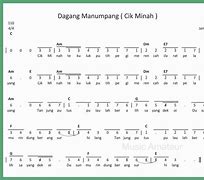
Promoted Nationalist Movement
Fearful of losing control over their island territory, the Dutch colonialists believed that knowledge of European languages and education could a be dangerous tool in the hands of the native Javanese. Consequently, they suppressed the activities of the native people, keeping them as peasants and plantation laborers, while at the same time counting on the Javanese nobility to support them in their rule over the region. Only a few of the nobility, Kartini's father included, were taught the Dutch language. Kartini believed that once the Europeans introduced Western culture to the island, they had no right to limit the desire of native Javanese to learn more. Clearly, by the late nineteenth century there was talk of independence. With her letters and her egalitarian fervor, Kartini can be said to have started the modern Indonesian nationalist movement.
Kartini was not proud of being set apart from her countrymen as one of the privileged few of the aristocracy. In her writings she described two types of nobility, one of mind and one of deed. Simply being born from a noble line does not make one great; a person needs to do great deeds for humanity to be considered noble.
Wrote Letters to Holland
From 1900 to 1904 Kartini stayed home from school in according to the dictates of Javanese tradition; she found an outlet for her beliefs in letters she wrote in Dutch and sent to her friends in Holland. Kartini was unique in that she was a woman who was able to write; what set her apart even further was her rebellious spirit and her determination to air concerns that no one, not even men, were publicly discussing.
Kartini wrote to her European friends about many subjects, including the plight of the Javanese citizenry and the need to improve their lot through education and progress. She recounts how Javanese intellectuals were put in their place if they dared to speak Dutch or to protest. She also describes the restrictive world she lived in, rife with hierarchy and isolationism. In 1902 Kartini wrote to one letter, to Mrs. Ovink-Soer, that she hoped to continue her education in Holland so that she could prepare for a future in which she could make such education accessible to all women.
Kartini is most known for writing letters in which she advocates the need to address women's rights and status, and to loosen the oppressive Islamic traditions that allowed discrimination against women. She protests against education restricted to males of the nobility, believing that all Javanese, male and female, rich and poor, have the right to be educated in order to choose their own destiny. Women especially are not allowed to realize their calling. As Nursyahbani Katjasungkana commented in the Jakarta Post, "Kartini knew and expounded the concept that women can make choices in any aspect of their lives, careers, and personal matters."
Educated at Dutch Schools
As a child, Kartini was very active, playing and climbing trees. She earned the nickname "little bird" because of her constant flitting around. A man of some modern attitudes, her father allowed her to attend Dutch elementary school along with her brothers. The Dutch had colonized Java and established schools open only to Europeans and to sons of wealthy Javanese. Due to the advantages of her birth and her intellectual inclination, Kartini became one of the first native women allowed to learn to read and write in Dutch.
Despite her father's permission to allow her a primary education, by Islamic custom and a Javanese tradition known as pingit, all girls, including Kartini, were forced to leave school at age 12 and stay home to learn homemaking skills. At this point, Kartini would have to wait for a man to ask for her hand in marriage. Even her status among the upper class could not save her from this tradition of discrimination against women; marriage was expected of her. For Kartini, the only escape from this traditional mode of life was to become an independent woman.
Letters Ultimately Published
Kartini's legacy is found in the many letters she wrote to friends in Holland. In 1911 a collection of her Dutch letters was published posthumously, first in Java and then in Holland as Door Duisternis tot Licht: Gedachten Over en Voor Het Javanese Volk ("From Darkness to Light: Thoughts about and on Behalf of the Javanese People"). The book was then translated into several languages, including French, Arabic, and Russian, and in 1920 was translated by Agnes Louis Symmers into English as Letters of a Javanese Princess. In 1922 Armijn Pane finally translated the book into the Javanese language under the title Habis Gelap Terbitlah Terang ("After Darkness, Light Is Born"), which he based on a verse found in both the Bible and the Qur'an in which God calls people out of the darkness and into the light. More recently, Kartini's granddaughter, Professor Haryati Soebadio, re-translated the letters and published them as Dari Gelap Menuju Cahaya, meaning "From Darkness into Light."
Kartini's letters spurred her nation's enthusiasm for nationalism and garnered sympathy abroad for the plight of Javanese women. Syrian writer Aleyech Thouk translated From Darkness into Light into Arabic for use in her country, and in her native Java Kartini's writings were used by a group trying to gain support for the country's Ethical Policy movement, which had been losing popularity. Many of Kartini's admirers established a string of "Kartini schools" across the island of Java, the schools funded through private contributions.
Kartini's beliefs and letters inspired many women and effected actual change in her native Java. Taking their example, women from other islands in the archipelago, such as Sumatra, also were inspired to push for change in their regions. The 1945 Constitution establishing the Republic of Indonesia guaranteed women the same rights as men in the areas of education, voting rights, and economy. Today, women are welcome at all levels of education and have a broad choice of careers. Kartini's contributions to Indonesian society are remembered in her hometown of Jepara at the Museum Kartini di Jepara and in Rembang, where she spent her brief married life, at the Museum Kartini di Rembang.
Opened School for Girls
Rather than remaining submissive and compliant, like a good Javanese daughter, the unconventional Kartini often had disagreements with her father, and it is believed that her family was, consequently, eager to marry her off. On November 8, 1903, she obeyed her father and married Raden Adipati Joyoadiningrat, the regent of Rembang. Joyoadiningrat was a wealthy man of age 50 who already had three wives and a dozen children. Kartini—who was, at 24 years of age, considered too old to marry well—found herself a victim of polygamy. She was devastated by the marriage, which ended her dream of studying abroad just as she was awarded a scholarship to study in Europe.
Despite the marriage, in 1903 Kartini was able to take a first step toward achieving women's equality by opening a school for girls. With aid from the Dutch government Kartini established the first primary school in Indonesia especially for native girls regardless of their social standing. The small school, which was located inside her father's house, taught children and young women to read and make handicrafts, dispensed Western-style education, and provided moral instruction. At this time, Kartini also published the paper "Teach the Javanese."
Kartini's enthusiasm at educating Indonesian girls was short lived. On September 17, 1904, at the age of 25, she died while giving birth to her son. Kartini is buried near a mosque in Mantingan, south of Rembang.
Raden Ajeng Kartini (1879-1904) is credited with starting the move for women's emancipation in Java, an island then controlled by Holland as part of the Netherlands Indies (now Indonesia). Born to the aristocracy, Kartini was privileged to be able to attend Dutch colonial schools, but was forced to quit at an early age due to Islamic law at the time. At the age of 24, she was married to a man twice her age who already had three wives. Kartini wrote letters to her friends in Holland protesting the treatment of women in Java, the practice of polygamy, and of the Dutch suppression of the island's native population. Decades later, the Indonesian state constitution promised gender equality to all its citizens, and Kartini Day continues to be celebrated on April 21 to commemorate Kartini's contribution to women's rights.
Kartini was born on April 21, 1879, in Mayong village near of Jepara, a town located in the center of the island of Java. She was born into the Javanese priyayi, or aristocracy; her father was Jepara mayor Raden Mas Adipati Ario Sosroningrat. Kartini was one of 12 children born to Raden's several wives.
Kartini Day Declared National Holiday
In Indonesia, April 21, Kartini's birthday, is a national holiday that recognizes her as a pioneer for women's rights and emancipation. During the holiday women and girls don traditional clothing to symbolize their unity and participate in costume contests, cook-offs, and flower arrangement competitions. Mothers are allowed the day off as husbands and fathers do the cooking and housework. Schools host lectures, parades are held, and the women's organization Dharma Wanita specially marks the holiday.
In more recent years criticism has arisen regarding the superficial observance of Kartini Day. Many now chose not to commemorate it, and it has increasingly been eliminated from school calendars. What saddens historians and activists is that Kartini has become a forgotten figure for the younger generation, who cannot relate to the achievements she wrought in a repressive society that is now almost forgotten. Historians have also debated the role Kartini herself played in promoting women's emancipation. Other than her letters, some have argued that she was a submissive daughter, feminine but not necessarily a feminist.
The film biography R. A. Kartini was produced to highlight her efforts to promote women's emancipation and education. Based on her published letters as well as memoirs written by friends, the film presents the two aspects of Kartini's life: her brief public life which had minimal effect, and her letters which, after her death, had profound influence on women all over the world. The film, written and directed by Indonesian filmmaker Sjuman Djaya, recreates Kartini's family life, ambitions, and the historical context of life under Dutch colonialism. Kartini is also remembered through businesses inspired by her vision. Kartini International, based in Ontario, Canada, advocates for women's education and rights, and won the 2000 Canadian International Award for Gender Equality Achievement for its work.
Kartini, R. A., Letters from Kartini: An Indonesian Feminist, 1900-1904, Monash Asia Institute, 1994.
—, On Feminism and Nationalism: Kartini's Letters to Stella Zeehandelaar, 1899-1903, Monash Asia Institute, 1995.
Palmier, Leslie, Indonesia, Walker & Co., 1965.
Jakarta Post, April 21, 2001; April 20, 2002.
Chaniago, Ira, "Raden Ajeng Kartini—A Pioneer of Women's Education in Indonesia," University of New England Web site,http://www.une.edu.au/unepa/Gradpost/gp_9.3web.pdf (December 23, 2003).
Discover Indonesia Online,http://indahnesia.com/Indonesia/Jawa/ (December 23, 2003).
Monash Asia Institute Web site,http://www.arts.monash.edu.au/mai/ (December 23, 2003).
Raden Adjeng Kartini (born April 21, 1879, Majong, Java [Indonesia]—died September 17, 1904, Rembang Regency, Java) was a Javanese noblewoman whose letters made her an important symbol for the Indonesian independence movement and for Indonesian feminists.
Her father being a Javanese aristocrat working for the Dutch colonial administration as governor of the Japara Regency (an administrative district), Kartini had the unusual opportunity to attend a Dutch school, which exposed her to Western ideas and made her fluent in Dutch. During adolescence, when she was forced to withdraw to the cloistered existence prescribed by tradition for a Javanese girl of noble birth, she began to correspond with several Dutch friends from her school days. She also knew and was influenced by Mevrouw Ovink-Soer, wife of a Dutch official and a dedicated socialist and feminist. In her letters Kartini expressed concern for the plight of Indonesians under conditions of colonial rule and for the restricted roles open to Indonesian women. She resolved to make her own life a model for emancipation and, after her marriage in 1903 to a progressive Javanese official, the Regent of Rembang, she proceeded with plans to open a school for Javanese girls.
Kartini died at the age of 25 of complications after the birth of her first child, but J.H. Abendanon—former director of the Department of Education, Religion, and Industry—arranged for publication of her letters in 1911, under the title Door duisternis tot licht (“Through Darkness into Light”). The book enjoyed great popularity and generated support in the Netherlands for the Kartini Foundation, which in 1916 opened the first girls’ schools in Java, thus fulfilling Kartini’s ambition. Her ideas were also taken up by Indonesian students attending Dutch universities, and in 1922 an Indonesian translation of the letters was published. Although Indonesian nationalist aims went far beyond her ideas, she became a popular symbol, and her birthday is celebrated as a holiday.
Offenbar hast du diese Funktion zu schnell genutzt. Du wurdest vorübergehend von der Nutzung dieser Funktion blockiert.























